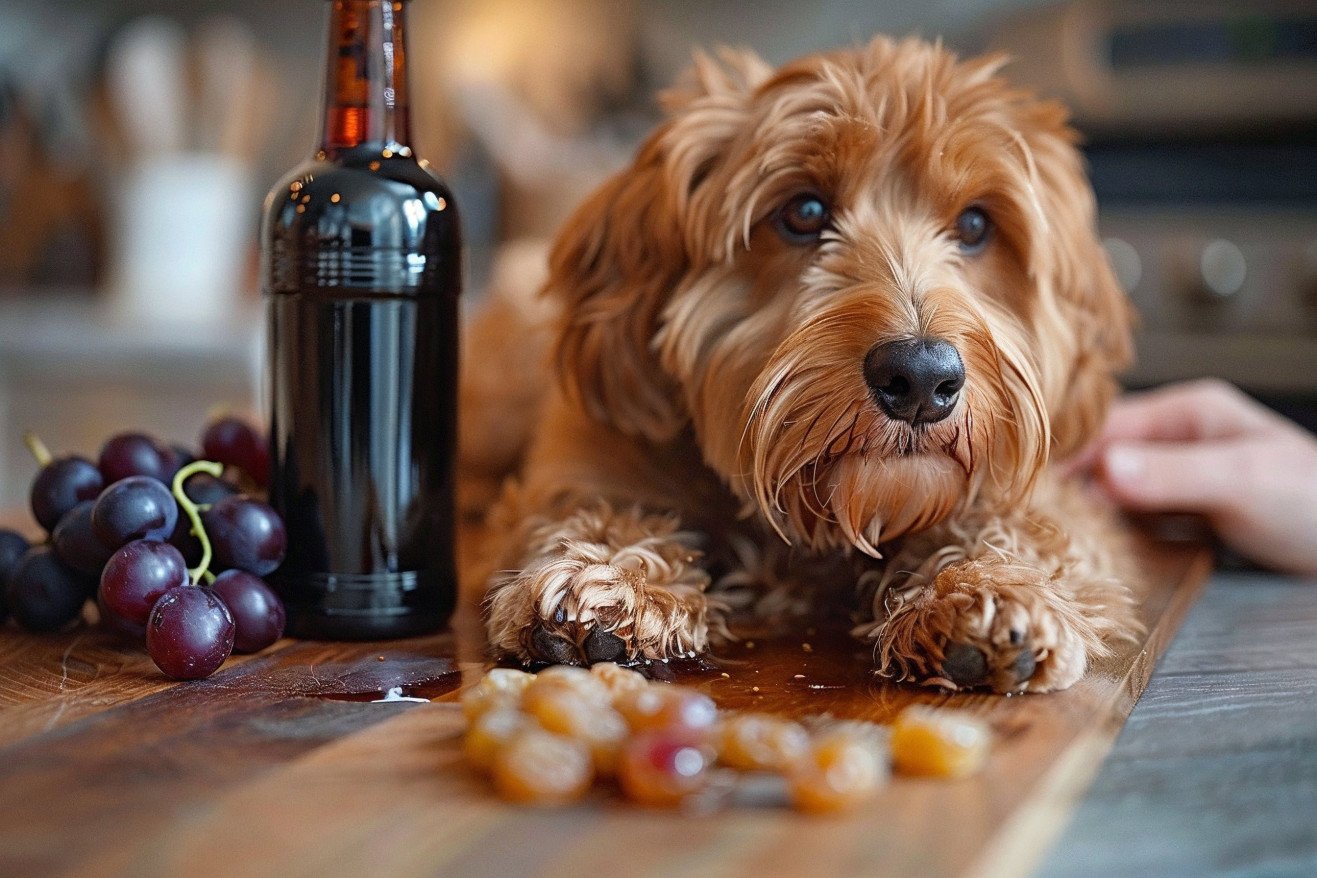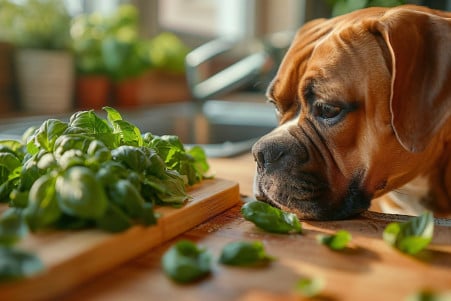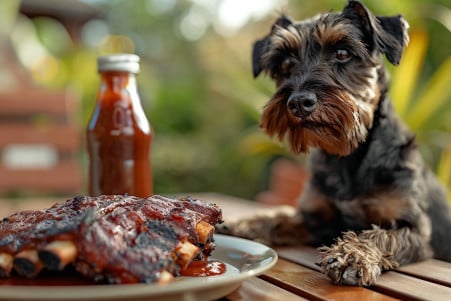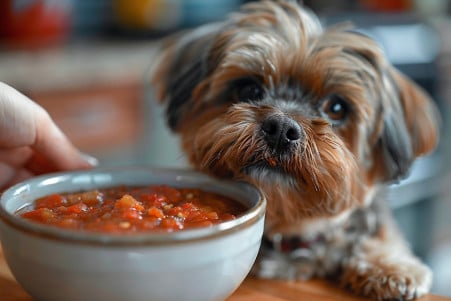Can Dogs Have Balsamic Vinegar? A Closer Look
4 June 2024 • Updated 4 June 2024

Can you add a little balsamic vinegar to your dog's dinner, or is it best to avoid giving dogs this popular vinegar? While balsamic vinegar is safe for dogs in small amounts, as it contains fewer toxins than other types of vinegar, you should limit your dog to a few drops as an occasional treat. Ingesting too much of any type of vinegar can cause stomach upset, leading to symptoms such as vomiting, diarrhea, and acid reflux.
We'll take a closer look at the nutritional content of balsamic vinegar and share insights from veterinarians and pet nutrition experts about how much balsamic vinegar is safe for dogs to consume. This information will help you decide whether or not you want to add this tasty vinegar to your dog's diet or avoid it altogether. Let's find out the truth about dogs and balsamic vinegar.
Can dogs have balsamic vinegar?
Grape and Raisin Toxicity in Dogs
Grapes and raisins are known to cause acute kidney failure in dogs, but the toxic agent is not yet known. Even small amounts can cause symptoms such as vomiting, diarrhea, lethargy, and kidney failure, according to the Utah Redwood Veterinary Hospital. The toxicity of grapes and raisins can also vary from dog to dog, with some dogs being affected by a few grapes or raisins and others being able to eat them without any problems, according to PetMD.
Dogs that have ingested grapes or raisins need to be taken to the vet immediately. As the Camillus Animal Clinic notes, the vet's goal is to decontaminate the dog and prevent kidney failure, which can be fatal. The prognosis for dogs with acute kidney failure is poor once the kidneys have shut down and stopped producing urine, according to VCA Animal Hospitals.
Grape and raisin toxicity is a real danger for dog owners, and these fruits should be kept away from dogs at all times to prevent potentially fatal poisoning. Even small amounts of grapes and raisins can have serious effects, so it's better to be safe than sorry.
More Toxic Foods for Dogs
In addition to grapes and raisins, there are several other foods that are toxic and even deadly to dogs. According to the ASPCA, these foods are chocolate, caffeine, alcohol, onions, garlic, xylitol, macadamia nuts, and certain fruits and vegetables.
Consuming these foods can result in a range of symptoms, including vomiting, diarrhea, seizures, liver failure, and pancreatitis, as described in this Healthline article. It's important for dog owners to know about these risks and make sure their pets can't access these foods.
If a dog does eat a toxic food, it's important to get them to the vet right away since the treatment will vary depending on the food and the symptoms, according to WebMD. Knowing these risks and preventing exposure is the best way to protect our furry friends from common household dangers.
Can People Consume Balsamic Vinegar?
People can consume balsamic vinegar and it may even have some health benefits. According to WebMD, balsamic vinegar is low in calories and high in antioxidants, trace minerals, and acetic acid.
In addition, the Eating Well article says that it may help with skin health, weight loss, digestion, and even lower cholesterol and blood sugar. Meanwhile, Medical News Today explains that balsamic vinegar's antimicrobial properties, acetic acid, and antioxidants can help with skin health and digestion.
That said, Healthline warns that balsamic vinegar can have negative effects, such as tooth enamel erosion and acid reflux, if consumed in large amounts. To avoid these, it's best to consume it in moderation. Most experts suggest that 2 tablespoons a day is the maximum amount that people should consume.
First Aid and Veterinary Treatment for Accidental Ingestion
If your dog ingests balsamic vinegar or another potentially toxic substance, it's important to act fast. According to the Cornell University College of Veterinary Medicine, you should call your veterinarian or a pet poison control hotline immediately and be prepared to provide information about the substance, the amount your dog ingested, and your dog's weight.
In some cases, your vet may recommend that you induce vomiting, but this should only be done under the guidance of a veterinary professional. As Happy Dog Training points out, the procedure can be dangerous, so it's important to talk to a vet or poison control representative first. If you do induce vomiting, try to save a sample, as it may help your vet determine the seriousness of the situation.
Veterinary treatment may include activated charcoal, IV fluids, and other supportive treatments, according to Dogster. The sooner your dog gets medical care, the better the chances that they'll recover without any lasting effects.
Conclusion: How to Keep Your Dog Safe
In addition to grapes and raisins, there are a number of other people foods that can be dangerous or even deadly for dogs. The ASPCA lists chocolate, caffeine, alcohol, onions, garlic, xylitol, macadamia nuts, and certain fruits and vegetables as common foods that can be toxic to dogs.
The Healthline article notes that these foods can cause a range of issues, including vomiting, diarrhea, seizures, liver failure, and pancreatitis. As a result, it's important for dog owners to be aware of these risks and make sure these foods are kept out of their pets' reach.
If a dog does eat a toxic food, it's important to seek immediate veterinary care since the appropriate treatment will depend on the food and the symptoms it causes, according to WebMD. Overall, awareness and prevention are the best ways to protect our furry friends from the many hazards they may encounter in our homes.


